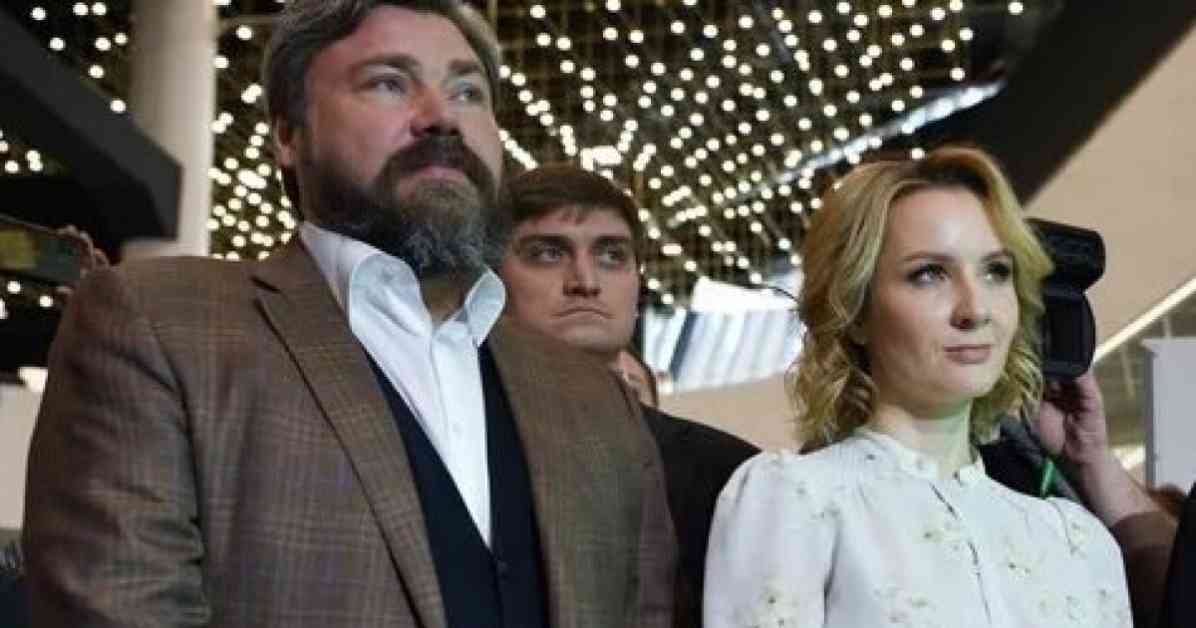Maria Lvova-Belova, Russia’s commissioner for children’s rights and known for her strong support of family values, has reportedly left her Orthodox priest husband for Russian oligarch Konstantin Malofeev, who is currently under US and EU sanctions for supporting separatists in eastern Ukraine. The 39-year-old commissioner has been accused of war crimes by the International Criminal Court for the unlawful deportation of Ukrainian children from areas occupied by Russia.
Ms. Lvova-Belova, who has adopted a total of 18 children, including a boy from Ukraine, has been seen holding hands with Mr. Malofeev at a church procession in Yekaterinburg, sparking rumors of their relationship. While the pair has not confirmed their romantic involvement, sources within the Orthodox Church suggest otherwise.
The commissioner’s close ties with the billionaire oligarch have raised eyebrows, especially considering Mr. Malofeev’s controversial views and support for Putin’s actions in Ukraine. Together, they announced a joint charity project aimed at helping Ukrainian children called Happy Childhood and have reportedly traveled to Russian-occupied regions in Ukraine together.
Despite her public image as a supporter of traditional values and Christian faith, Ms. Lvova-Belova’s reported relationship shift has caused a stir in Russian media and among the public. Her departure from her husband, Orthodox priest Pavel Kogelman, with whom she shares five biological children and has adopted another five, marks a significant change in her personal life.
The commissioner’s involvement with Mr. Malofeev, who advocates for Russia to become a monarchy and has faced criticism for his role in the conflict in Ukraine, has added a new layer of complexity to her already controversial reputation. The couple’s alleged closeness has been a subject of speculation and scrutiny in both domestic and international media.
As the story unfolds, questions arise about the intersection of personal relationships, political allegiances, and public responsibilities. The evolving dynamics between Ms. Lvova-Belova, her former husband, and her reported new partner shed light on the complexities of power, influence, and personal choices in the realm of Russian politics and society. The commissioner’s shift from a public advocate of family values to a figure embroiled in a scandalous affair with a sanctioned oligarch reflects the intricate web of relationships and interests that define contemporary Russian society.












